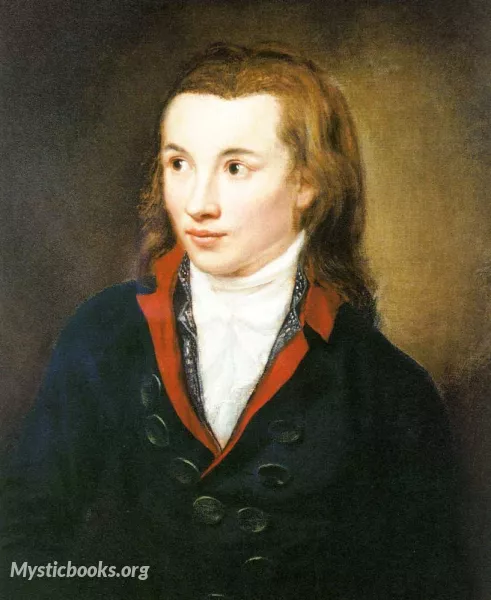
Timeline
Title
Country/Nationality
Novalis
Novalis (born Friedrich von Hardenberg; 28 May 1772 – 25 March 1801) was a German poet, novelist, and philosopher. He was a major figure in the early Romantic movement, and his work is characterized by its idealism, mysticism, and longing for the infinite.
Who was he?
Novalis was born in Oberwiederstedt, Germany, in 1772. He was the son of a mining official and a homemaker. Novalis was educated at the University of Jena, where he studied law and philosophy.
What were his principles?
Novalis's principles were based on the ideals of the Romantic movement. He believed in the power of imagination, the importance of feeling, and the need for spiritual renewal. He also believed in the unity of all things, and he saw the world as a symbol of the divine.
What was he famous for?
Novalis is famous for his poetry, which is often lyrical and dreamy. His best-known poem is "Hymns to the Night" (1799), which is a meditation on the nature of love and death. Novalis is also known for his novel Heinrich von Ofterdingen (1802), which is an unfinished work that explores the themes of love, imagination, and the search for the unattainable.
Notable Works
- Hymns to the Night (1799): A collection of poems about love and death
- Heinrich von Ofterdingen (1802): An unfinished novel about the search for the unattainable
- Pollen and Fragments (1798): A collection of essays and fragments on philosophy, religion, and art
Philosophy
Novalis's philosophy was influenced by the ideas of the German Romantics, such as Johann Wolfgang von Goethe and Friedrich Schelling. He believed in the power of imagination to create a new reality, and he saw the world as a symbol of the divine. Novalis also believed in the unity of all things, and he saw the universe as a living organism.
Death and Legacy
Novalis died of tuberculosis in 1801 at the age of 28. He is remembered as one of the most important figures in the early Romantic movement. His work has been translated into many languages, and it continues to be read and appreciated by people all over the world.
How is he remembered?
Novalis is remembered as one of the most important figures in the early Romantic movement. His work has been translated into many languages, and it continues to be read and appreciated by people all over the world.
Novalis's ideas have been influential in a variety of fields, including philosophy, literature, and art. His work has been praised for its beauty, its originality, and its insights into the human condition. Novalis is considered one of the most important poets of the German language, and his work continues to inspire and challenge readers today.
Books by Novalis
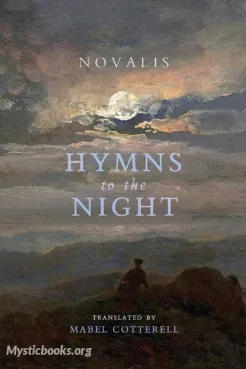
Hymns to the Night
"Enter the mystical realm of 'Hymns to the Night' by Novalis, where darkness and light intertwine in a dance of poetic brilliance. In this collection, the enigmatic Novalis takes readers on an introspective journey through the depths of the night, a...
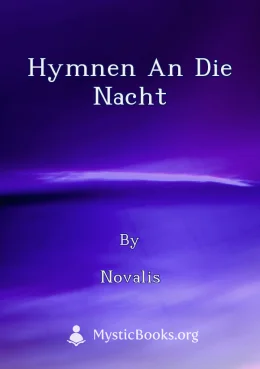
Hymnen an die Nacht
Hymnen an die Nacht ist der Titel eines Gedichtzyklus von Novalis (Friedrich von Hardenberg). Der Zyklus wurde zuerst 1800 in der Zeitschrift Athenäum veröffentlicht. Die Hymnen an die Nacht ist das einzige größere Werk, das zu Novalis' Lebzeiten ver...
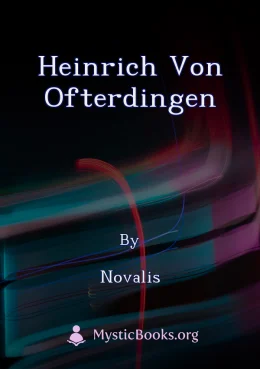
Heinrich von Ofterdingen
Heinrich von Ofterdingen ist ein unvollendeter Roman des deutschen Romantikers Novalis. Der junge Heinrich, ein angehender Dichter, begibt sich auf eine Reise, um die „blaue Blume“, ein Symbol für die ideale, vollständige Welt, zu finden. Auf seiner...
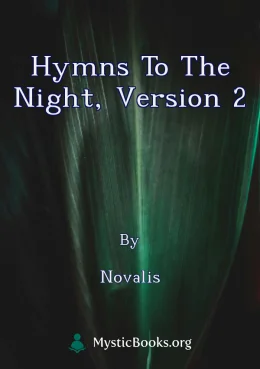
Hymns to the Night, version 2
‘Hymns to the Night’ is a collection of poems written by Novalis, a German Romantic poet, after the death of his beloved Sophie von Kühn. The poems explore themes of love, loss, faith, and the longing for the divine. Novalis uses the imagery of the n...